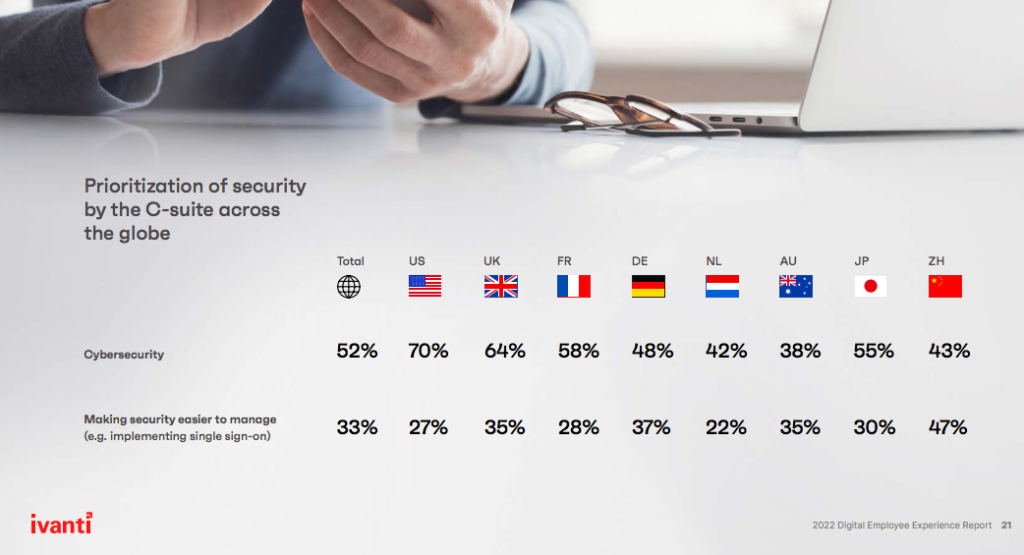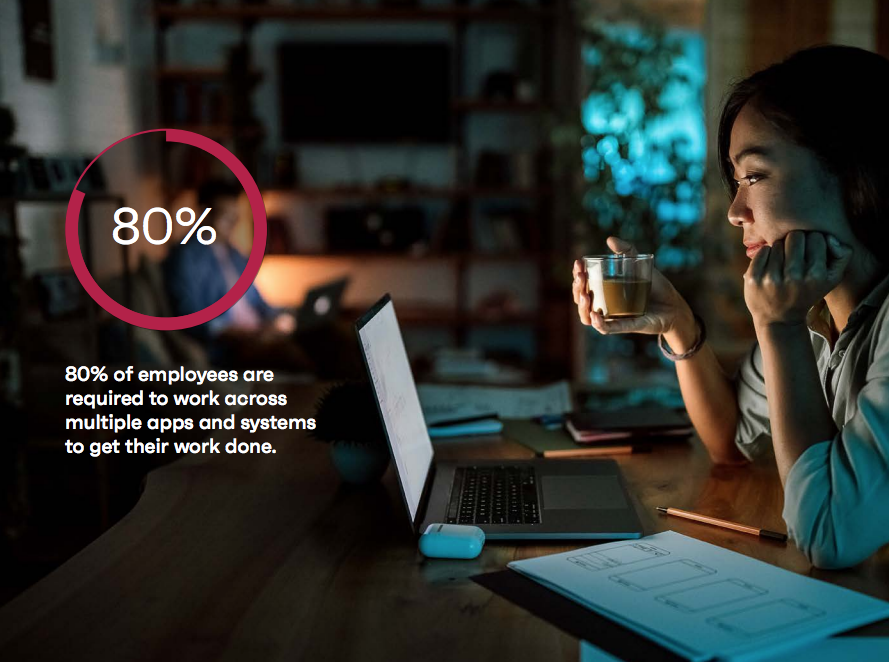State of the Digital Employee Experience (DEX) study measures tech-use satisfaction
Innovation remains to be the driving force behind the rise of hybrid work, but unfortunately, the truth is that many organisations still experience major challenges in tech adoption. The top challenges reported include too many emails or chat messages 28%, a lack of connection to coworkers 27% and software not working properly 23%. But despite these challenges and executive scepticism, all groups reported being more productive in the era of hybrid work.
This highlights the fact that it is not so much the place of work that impacts productivity, but the experience that people have when interacting with technology.
Ivanti, recently announced the results of its State of the Digital Employee Experience (DEX) study. It surveyed 10,000 office workers, IT professionals and the C-Suite to evaluate the level of prioritisation and adoption of DEX in organisations and how it shapes the daily working experiences of employees.
The research uncovered 64% of employees believe their experience with technology impacts their morale, but only 20% of the C-Suite put budget towards improving the digital employee experience and only 21% of IT leaders prioritise end-user experience when selecting a tool.
The report revealed that 49% of employees are frustrated by the tech and tools their organisation provides and 64% believe that the way they interact with technology directly impacts morale.

Key findings
- 26% of employees are considering quitting their jobs because they lack suitable tech
- 42% have spent their own money on better tech to work more productively
- 65% believe they would be more productive if they had better technology at their disposal
"Ensuring positive employee digital experiences is the new cornerstone of modern business IT management," noted Steve Brasen, research director with Enterprise Management Associates. "The improvement of workforce productivity helps attract and retain essential talent, accelerates business agility and competitiveness, reduces operational costs and drives organisational success and profitability. Understanding DEX requirements is the key to adapting related technologies and practices that will support each organisation's unique environment."
The growing variety of devices and networks that hybrid workers use has greatly expanded the inventory of assets that IT teams need to manage, but 32% of IT professionals still use spreadsheets to track these assets.
With the availability of innovative new technologies that both enable and support hybrid workforces, IT now has the opportunity to make a positive impact on broader organisational strategy. By taking ownership of the digital employee experience and working closely with the C-suite to accomplish common goals, IT can drive better business outcomes – from employee productivity to workforce retention. After all, the Everywhere Workplace is undeniably the future of work and digital experience is its number-one enabler.





